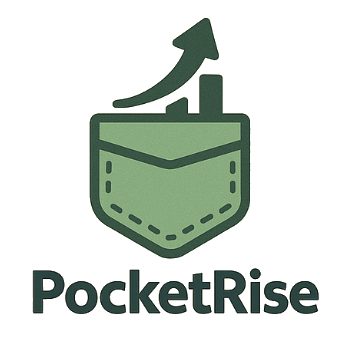When the economy feels shaky – like now – it’s natural to worry about your finances. From rising interest rates to global tensions and inflation, the pressure is real. But there are steps you can take right now to protect your money and even come out ahead.
Here’s how to recession-proof your finances, one smart decision at a time.
1. Build (or Rebuild) Your Emergency Fund
Start by stacking up your safety net. Ideally, you should have 3 to 6 months’ worth of essential expenses saved in a high-yield savings account.
If that sounds impossible, start with $500 to $1,000 and build from there. The key is progress, not perfection.
💡 Tip: Automate small weekly transfers into your savings. Even $20 a week adds up.
2. Cut Non-Essential Spending
Take a close look at your monthly expenses. Subscriptions, takeout, unused gym memberships – they all add up.
Ask yourself:
- Do I use this every week?
- Can I find a cheaper version?
- Can I pause or cancel it for now?
Cutting even $100 to $200 a month can go straight into your emergency fund or debt payoff.
3. Focus on High-Interest Debt First
Recessions often bring tighter credit and higher rates. That makes credit card debt more dangerous than ever.
Pay off high-interest balances first. If you can, transfer to a 0% interest credit card or consolidate with a lower-rate loan. The goal is to reduce the interest drag on your monthly cash flow.
💡 Don’t ignore your credit score – it can help you qualify for better terms when you need it most.
4. Diversify Your Income Sources
Job security can disappear fast during a downturn. That’s why having multiple income streams is a powerful safety tool.
Consider:
- Freelancing or remote side gigs
- Selling unused items
- Teaching or tutoring online
- Renting out a room or property
- Using skills you already have (photography, writing, coding, design)
Start small, stay consistent, and reinvest your extra earnings.
5. Keep Investing – But Be Strategic
It might be tempting to stop investing during uncertainty. But time in the market beats timing the market.
If you’re already investing:
- Stick to your plan unless your risk tolerance or goals change
- Focus on low-cost index funds or dividend-paying stocks
- Don’t panic sell
If you’re just starting, consider using platforms with fractional shares so you can invest small amounts regularly.
⚠️ This is not financial advice. Always do your own research or consult a professional.
6. Know What Support Is Available
Recessions often bring government relief programs. Stay informed about:
- Unemployment benefits
- Student loan relief
- Healthcare assistance
- Small business grants or loans
Bookmark resources like Benefits.gov and check your state’s official websites.
7. Stay Calm and Informed
Economic uncertainty can spark fear. But don’t let headlines drive every decision.
Stick to trusted financial news sources and focus on what you can control: saving consistently, reducing debt, protecting your income, and making thoughtful decisions.
Final Thoughts
You don’t need to be rich to recession-proof your money. You just need to be proactive. The habits you build today can carry you through any economy.
Small moves matter – and you’re not alone.



